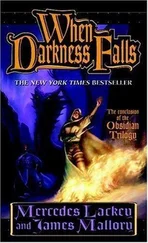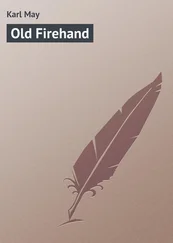“How did she seem?”
“Oh, busy, rushed, like everyone these days.”
“Did she say where she was going?”
“No,” she said. She drew out the syllable, as if she were thinking about it. “No. She didn’t.”
“Thanks, Denise.”
“Is everything all right?” She’d lowered her voice to a whisper. He’d always liked her. She was one of the few people in The Hollows who could be counted on to keep her mouth shut.
“I hope so,” he said. “Not a word about this, okay?”
“Of course not,” she said. “You know me better than that.”
When he hung up with Denise, every nerve ending in his body was buzzing. If he were still a cop, he’d know what to do. There was a very clear protocol to follow: have someone file a missing-persons report, access phone and banking and credit-card records, put her license-plate number in the system, hope she got pulled over or that someone found her abandoned car. But he was a civilian now; he couldn’t do any of that. He could report her missing. But he didn’t want to do that. If she had fled for good reason, he’d only be helping her husband track her down.
He put in a call to the contact at the credit bureau he’d reached out to about Carr’s ex and left a voice mail. Jack Kellerman. They’d been drinking buddies forever, meeting every couple of months in the city or here in The Hollows when Jack was back visiting his parents. Jack was always broke, so Jones always picked up the tab. Jack returned the favor by putting Jones’s requests ahead of everyone else’s or keeping them quiet when they were trying to get around a subpoena.
“I thought you were out of this game,” Jack had said when they’d spoken yesterday.
“I guess you’re never really out of it, somehow,” said Jones.
“It does get a hold on you,” Jack said. “You know you can count on me anytime.”
On the job Jack had been Jones’s most valuable contact. It was nice to know that the relationship was still there. If Jones did decide to go private (which he had not), it would make a big difference. Once you had access to someone’s credit-card charges, you could easily track that person-hotels, gas stations, tollbooths, ATMs. Everyone used plastic. If someone stopped, he was either dead, off the deep end, or trying to get lost.
Next he phoned Chuck, ostensibly to tell him about Paula Carr and the odd call from her husband.
“You think there’s reason to be concerned for her safety?” asked Chuck when he was done.
“Possibly,” said Jones.
“You want to report her missing?”
“I’d stop short of that.”
“Why?”
Jones told him about the call to Denise Smith.
“So what do you want me to do?” Chuck sounded annoyed. Overworked. Underpaid. Hassled by bosses and civilians, probably his wife, too.
“I guess I was just wondering what you think,” said Jones. This wasn’t strictly true. There was silence on the line; Chuck had stopped typing.
“If it were me,” Chuck said, “I’d call the parents. Feel them out if you’re concerned.”
“That’s what I was thinking,” said Jones. Jones could tell that Chuck was flattered that Jones had sought out his opinion. He was getting into it. No cop could resist a good mystery, or the idea that someone wanted to know what he thought about it.
“If she hadn’t picked up the kid,” Chuck said, “I’d be more inclined to tell you to fill out a missing-persons report, get the ball rolling in case we’re looking at foul play. I mean, if she really had assaulted him and taken the kids, why wouldn’t he have called the police and filed a report? If he was a good guy, truly concerned for the safety of his kids, no matter how much he loved his wife, he’d have filed charges last night. He’d be frantically looking-and so would we.”
“Exactly,” Jones said. “It’s suspicious.”
“Yeah, I’d call the parents,” Chuck said. “Chances are she went to them.”
“That’s good advice. In the meantime can I give you her tag number?” he said. This was the real reason he’d called Chuck. There was new license-plate-recognition software. Using security and CCTV cameras that were all over the place, cops could track plates now. It was something that was happening very quietly, under the radar of the media and civil-rights groups. As a civilian, Jones didn’t have access to that anymore, and the technology was so new that he didn’t have a private contact. “Maybe you’ll get a hit on her vehicle somewhere?”
Another pause. It was a favor he was asking Chuck, something not quite aboveboard. Jones waited.
“Yeah, sure,” Chuck said finally.
Jones had taken down the make, model, and plate number of Paula Carr’s SUV when he left her house the other day. Force of habit.
“Since I have you on the phone…” said Chuck.
“What’s up?”
“Want to take a ride up to the dig site? The Grove boys are giving my men a hard time. Things might go easier if you were there to mediate.”
“I thought you’d never ask,” said Jones.
Chuck gave a little laugh. “It’s nice to be working with you again, man,” he said.
Brother, you have no idea .
When Eloise glanced in the visor mirror to check her reflection, she saw Marla in the backseat.
“It has changed so much here,” Marla said. She sounded wistful and far away, a voice broadcasting from another time and place.
Eloise ignored her. This was new. She was still aware of herself, of Ray, the car interior. She felt the heat of Ray’s thigh pressed against hers. She could smell the stale cigar smoke that had made a home in the upholstery. The car was old; he could afford better. There was a crack in the beige dash, an ash burn on the seat. Outdated pictures of his kids were fastened with rubber bands to the driver’s-side visor. Drive it till it dies, that was Ray’s philosophy about cars-about cases, about relationships, about shoes, too, for that matter. The odometer on the old Caddy (bought used) read ten thousand miles, having turned over last year. She reached out a finger to touch the crack.
“What?” said Ray. “It’s a piece of shit. I know.”
“I didn’t say anything.”
“I’m old-school, El. I’m not buying into the mass-consumer bullshit. Everything doesn’t have to be newer, better, brighter, shinier. What about the good-enough stuff rotting away in landfills? I’m about using as little as possible.”
“Old-school is new-school,” Eloise said. She held back a smile. “You’re preaching to the choir.” Eloise looked in the mirror again, hoping Marla had gone. But no.
“Nobody ever loved me like Michael,” she said. “Not even Mack. Even as a baby, Michael never wanted anyone else. I thought he’d outgrow it, but he never did.”
Eloise remembered how Michael used to cry when his mother left, even when he knew she was just running out for groceries or going for a jog. It wasn’t normal. Little Cara was so easy. She might fuss for her mama, but eventually she settled in after a bit to color or have some animal crackers. Michael sulked, sitting by the window until Marla came home. He was eleven or twelve the last time Eloise had watched him, far too old for that kind of behavior.
“He was fourteen that night,” Marla said. “Too big, too tall for his age. Taller than Mack already by then. He never made friends easily. He was happy to stay home with me. And I was so lonely in my marriage to Mack that I was happy to have him. Is that wrong?”
Eloise saw the dark purple necklace of handprints on Marla’s throat then. She brought a hand to her own neck.
“What are you staring at?” asked Ray.
“Nothing,” said Eloise. She glanced down at her knees. Her legs looked like tree branches, thin and knobby, jutting out from her yellow slicker.
Читать дальше












